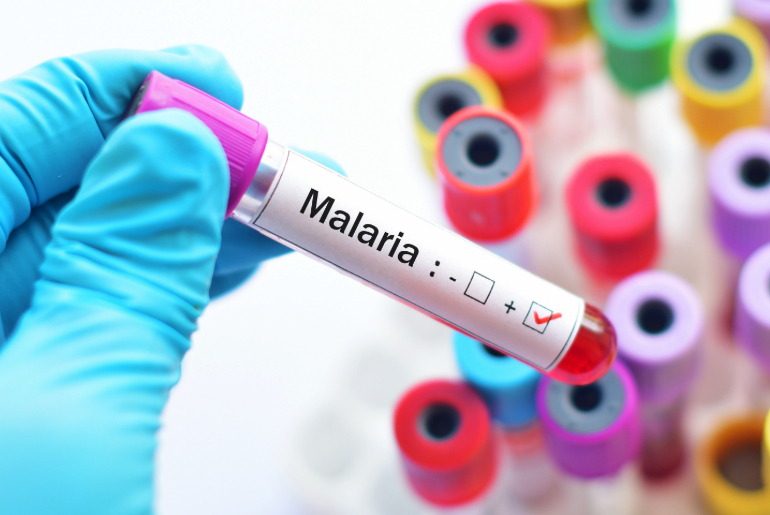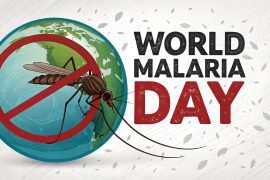Malaria remains a major health concern in India. Despite numerous efforts, this disease continues to affect millions. As per WHO’s World Malaria Report 2021, India is the highest contributor to malaria cases in the Southeast Asia region, with a staggering 82.5%[1]. Understanding malaria can help you stay protected and take the right steps if you or someone you know falls ill.
What is Malaria?[2]
It is a life-threatening disease which is caused by the Plasmodium parasite. This parasite is transmitted to people through the bites of infected female Anopheles mosquitoes. Once inside the body, the parasite multiplies in the liver and infects red blood cells of the person.
Causes and Transmission of Malaria[2]
While there are several species of Plasmodium that can infect humans, Plasmodium falciparum and Plasmodium vivax are the most common. The former is known to cause the most severe form of malaria, often leading to complications and fatalities if not treated promptly. Female Anopheles mosquitoes, which transmit malaria, bite mainly during the night.
Life Cycle of the Plasmodium Parasite[3]
It involves several stages. The cycle starts when an infected mosquito injects the parasites in the form of sporozoites. These sporozoites then travel to the liver, where they mature and multiply. After a few days, they enter the bloodstream and infect the red blood cells, causing them to burst and release more parasites. This cycle of red blood cell infection and bursting leads to the symptoms of malaria.
Other Possible Transmission Methods[4]
Malaria can also be transmitted through blood transfusions, organ transplants, or the use of shared needles or syringes. Additionally, a pregnant woman can transmit malaria to her unborn child, known as congenital malaria.
Symptoms of Malaria[4]
Early Symptoms: Early symptoms of malaria typically appear 10-15 days after the infective mosquito bite. These symptoms are often similar to those of the flu and include fever, headache, chills, and sweating. Due to their nonspecific nature, early symptoms can sometimes be mistaken for other illnesses.
Progressive Symptoms: If not treated, malaria symptoms can progress. In addition to the initial symptoms, a person may experience muscle pain, fatigue, nausea, vomiting, and diarrhea. The cycles of fever and chills can become more pronounced, with symptoms recurring every two to three days.
Severe and Complicated Malaria: Severe malaria is a medical emergency and can lead to complications such as anemia, jaundice, seizures, coma, and organ failure. Immediate medical attention is a must to prevent complications and fatalities.
Diagnosis of Malaria[5]
Malaria is diagnosed through blood tests. The most common diagnostic methods include microscopic examination of blood smears and rapid diagnostic tests (RDTs). These tests can detect the presence of Plasmodium parasites in the blood and help determine the species causing the infection.
Treatment Options for Malaria[4]
Medications: Malaria treatment involves a combination of medications to eliminate the Plasmodium parasites from the bloodstream. It is important to complete the full course of the treatment to ensure that all parasites are eliminated and to prevent drug resistance.
Management of Severe Malaria: Severe malaria requires immediate medical attention and often involves hospitalisation. Treatment includes intravenous medications and supportive care to manage complications and stabilise the patient’s condition.
Importance of Completing the Treatment: Completing the full course of malaria treatment is crucial for a full recovery. Incomplete treatment can lead to a relapse and contribute to the development of drug-resistant strains of the parasite.
Prevention Measures for Malaria[4]
Personal Measures: These include using mosquito nets while sleeping, applying mosquito repellents on exposed skin, and wearing protective clothing to minimise mosquito bites.
Environmental Management: Eliminating mosquito breeding sites, such as stagnant water, can reduce the population of Anopheles mosquitoes.
Conclusion
Malaria is a serious disease, but with the right knowledge and preventive measures, it can be effectively managed and controlled. Stay informed, take preventive actions, and seek timely medical attention if you suspect malaria. Take care of yourself and your loved ones’ well-being relies on it.
Reference Links:
[1] https://www.who.int/india/health-topics/malaria/summary-of-world-malaria-report-2021#:~:text=India%20being%20the%20largest%20contributor,WHO%20South%2DEast%20Asia%20Region.
[2] https://www.who.int/health-topics/malaria#tab=tab_1
[3] https://www.malariavaccine.org/malaria-and-vaccines/vaccine-development/life-cycle-malaria-parasite
[4] https://my.clevelandclinic.org/health/diseases/15014-malaria
[5] https://www.cdc.gov/malaria/hcp/diagnosis-testing/index.html#:~:text=Malaria%20parasites%20can%20be%20identified,the%20parasites%20a%20distinctive%20appearance.





Comments are closed.